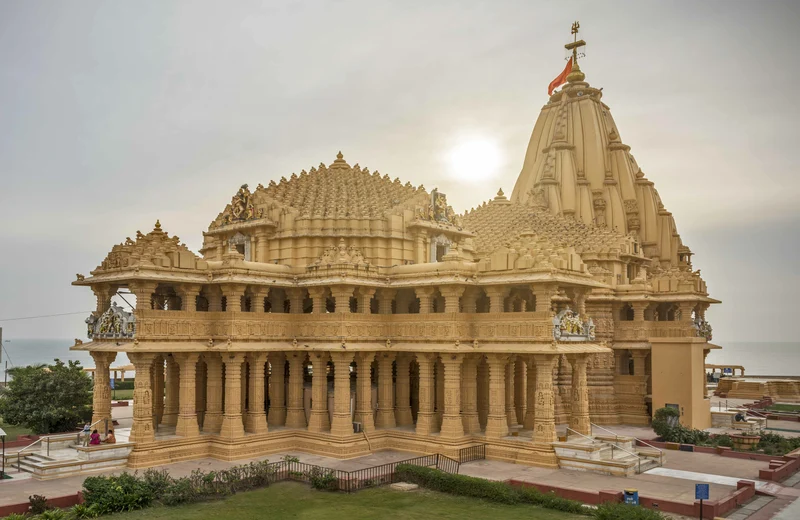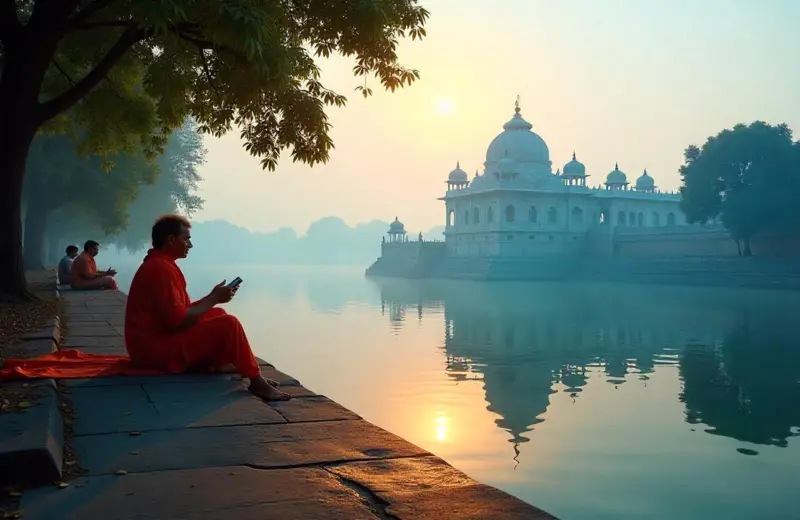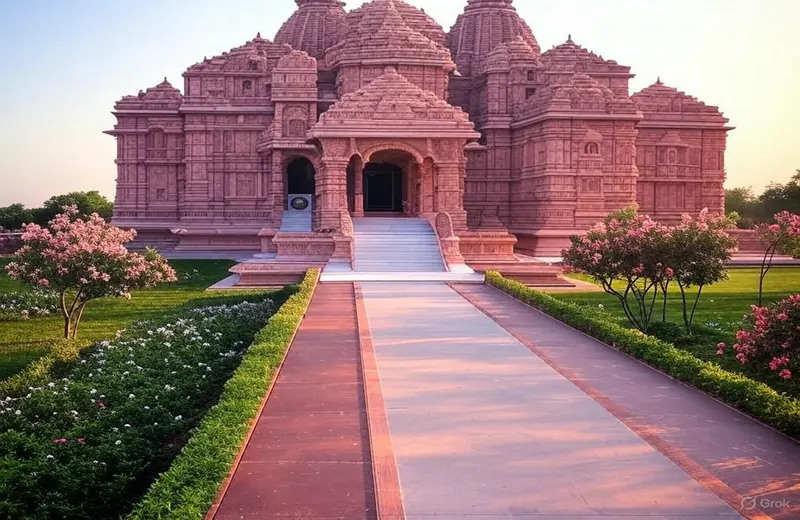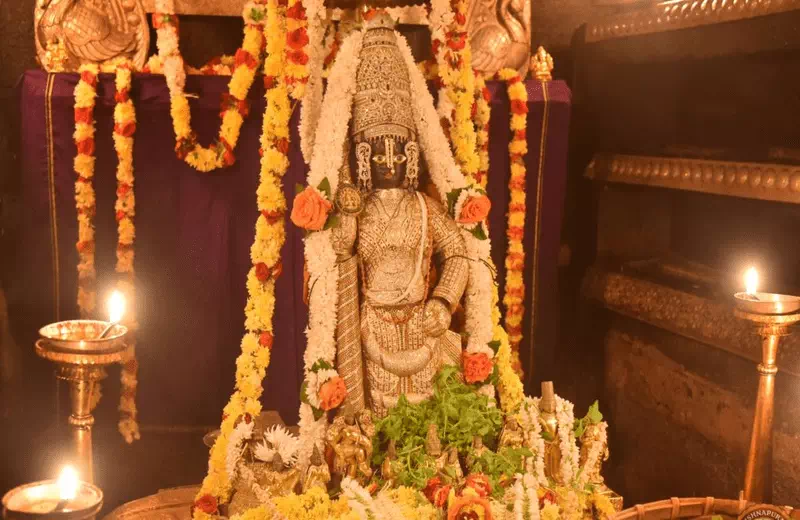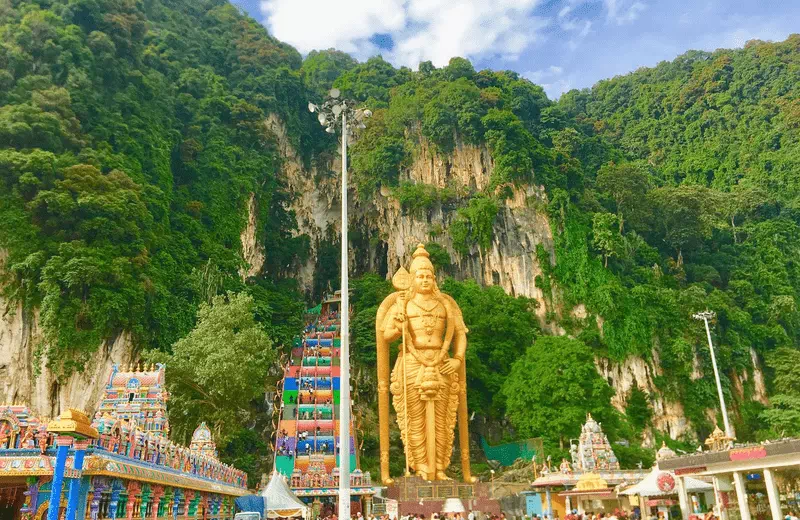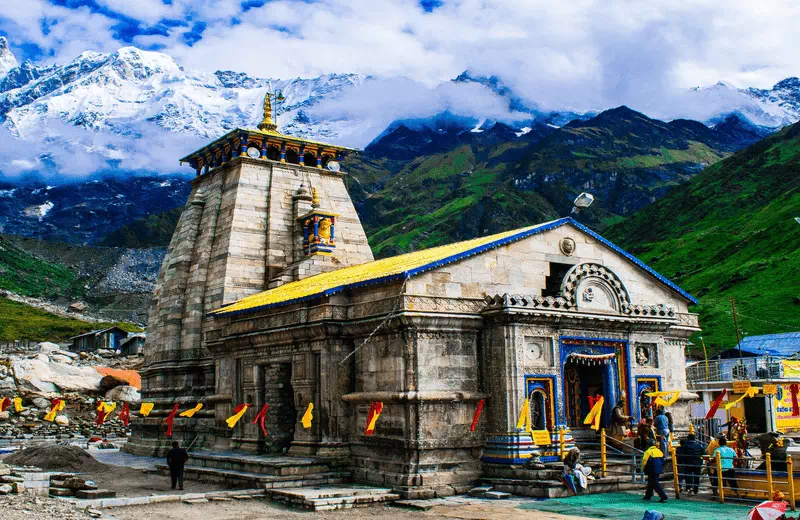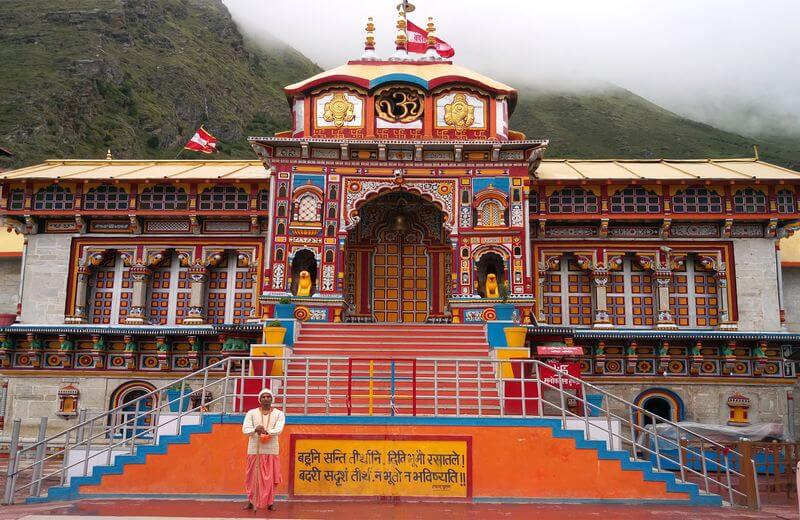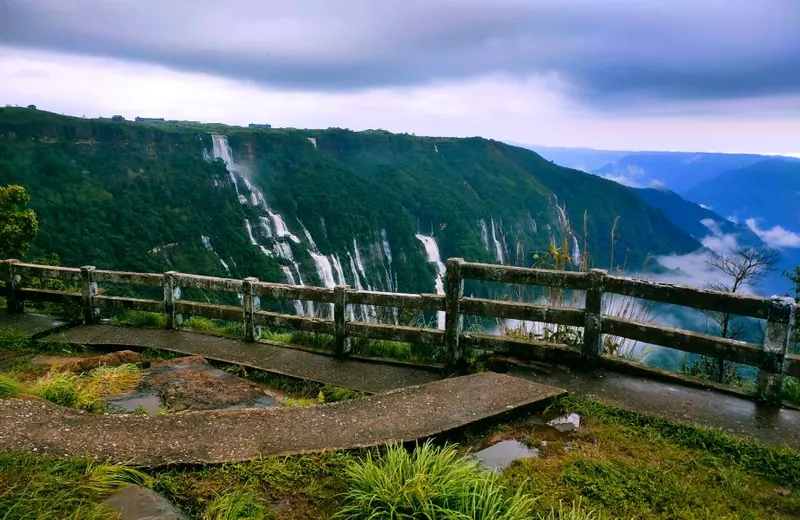Murugan Temple in Sydney A Must-See Attraction for Spiritual Seekers
Sydney, a global city, is home to a wide variety of religious organizations, each with its own unique provides and traditions. The Murugan Temple, a Hindu temple in Westmead, Sydney, that is devoted to the god Murugan, is one of these establishments.
This article will discuss the history and significance of the Murugan Temple, in addition to its rituals and offerings, and it will also serve as a guide for anyone who want to visit the powerful temple and learn more about it.
Also Known as the Sydney Murugan Temple, the Murugan Temple is located in the Mays Hill area, some 22 kilometers west of Sydney's central business area.
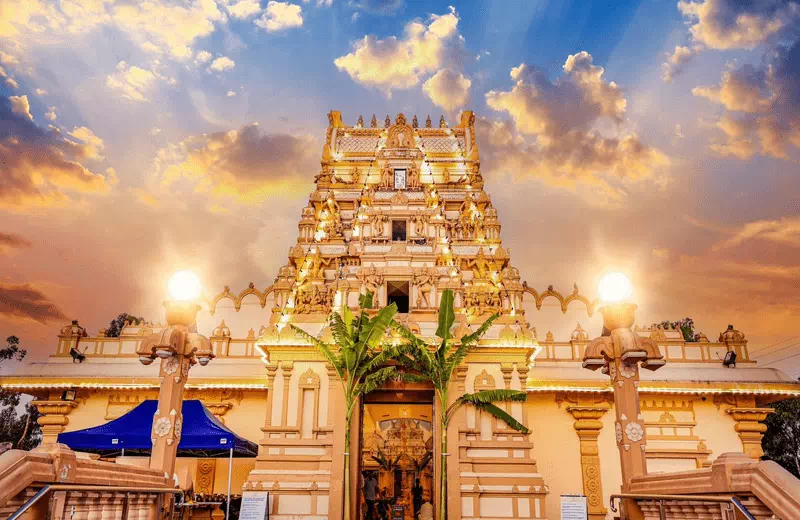
Murugan Temple in Sydney: A Spiritual Haven
The Hindu community's temple, known as Murugan Temple, is located in Sydney's Mays Hill neighborhood of New South Wales. Lord Murugan, who is known as the god of battle, victory, information, and beauty, is the focus of this temple. The temple features amazing sculptures and complex carvings that are a visual feast, and it is built in the South Indian architectural style.
History of Murugan Temple
The Sydney Murugan Temple's origins may be found in the early 1980s, when a group of Tamil Hindus living in Sydney began discussing the idea of building a temple here.
A Hindu organization called the Saiva Manram was founded in 1985 to manage the temple's development. at 1987, the Saiva Manram purchased an area of land at Mays Hill, and in 1994, work on the temple started. The temple was finished in 2000 and officially opened in 2001.
The temple, which was created with the intention of spreading Hindu culture and values in Australia, has grown to be an important spiritual center for the Indian population in Sydney. Regular poojas, bhajans, and cultural activities offered at the temple attract visitors from all around Australia.
Architecture and Design
A beautiful example of South Indian architectural style is seen at Sydney's Murugan Temple. The clarify carvings, sculptures, and paintings of the temple are a tribute to the creativity and skill of those who developed and constructed it. The exterior of the temple has a complex entry with a Gopuram (tower), a distinctive element of South Indian temple design.
The Lord Murugan deity, who is sitting on a peacock, is housed in the temple's main shrine. Other Hindu deities including Lord Shiva, Goddess Parvati, Lord Ganesha, and Lord Hanuman also have temples in the temple's inner sanctum. Beautiful murals that represent Lord Murugan's life and legends decorate the walls of the temple.
Spiritual Significance of Murugan Temple
The Hindu community in Australia holds a special place in their hearts for the Murugan Temple in Sydney. It is a haven where believers are able to connect with the divine and look for peace and guidance. Regular poojas and bhajans held at the temple serve as a forum for spiritual growth and self-discovery.
Thaipusam, a significant Hindu festival that celebrates Lord Murugan's triumph over the demonic Soorapadman, is one of the important holidays celebrated at the temple. In order to show their devotion to Lord Murugan, devotees travel on a pilgrimage while carrying a kavadi, a decorated wooden arch.
Visiting the Murugan Temple: A Guide for Visitors Location and Hours
The Murugan Temple is located in Australia at 217 Great Western Highway in Westmead, NSW 2145. Every day from 6:00 am to 12:00 pm and from 4:30 pm to 8:30 pm, the temple is open.
Dress Code and Protocol
It is required that visitors to the Murugan Temple dress properly and follow the rules of the temple. This entails covering one's head, taking off one's shoes before entering a temple, and dressing modestly. In addition, visitors ought not to disrupt with current religious events or take photographs within the temple without permission.
Temple Services and Offerings
Visitors are allowed to take part in the temple's offerings and ceremonies, including buying tickets for puja ceremonies like the abhishekam. Prasad and other blessed food items are also available for purchase at the temple.
Cultural Events and Festivals
Everyone is welcome to attend the cultural activities and festivals held at the temple. These include music concerts, dancing performances, and festivals like Thaipusam.
Sydney Murugan Temple Pooja Timings
The Sydney Murugan Temple has different pooja timings throughout the week. Here is the general schedule of daily poojas at the temple:
- 6:00 AM - Morning Abhishekam
- 9:00 AM - Morning Pooja
- 12:30 PM - Midday Pooja
- 5:30 PM - Evening Pooja
- 7:00 PM - Evening Abhishekam
- 8:30 PM - Night Pooja
It is important to keep in mind that the temple may follow a different schedule on holidays and special events. For the most recent details on the times of poojas and other activities, it is advised to visit the temple's official website or get in touch with them directly.
Particularly during festivals and other significant events, it is suggested that visitors arrive early for the pooja rites because the temple might get extremely busy. Additionally, it's important to conform to the etiquette and norms of the temple when participating in the pooja ceremonies and to dress accordingly.
Journey to Inner Peace at Murugan Temple in Sydney
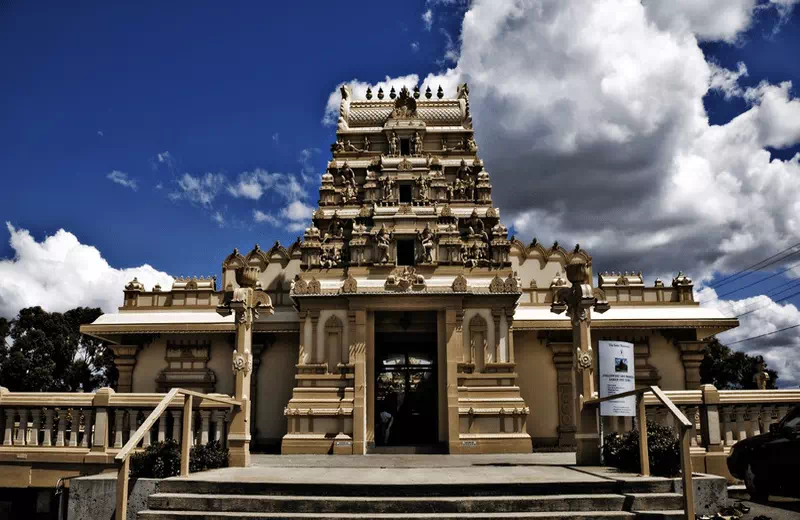
Festival at the Sydney Murugan Temple
Throughout the year, the Sydney Murugan Temple celebrates a number of festivals that are significant spiritual and cultural events for the Tamil community. The following are some of the main festivals celebrated at the temple:
Thai Pongal:
A four-day harvest festival is celebrated by the Tamil population worldwide in January. Thai Pongal is celebrated at the Sydney Murugan Temple with traditional ceremonies, music, dance performances, and feasting.
Maha Shivaratri:
The Hindu celebration of Maha Shivaratri honors the Hindu god Shiva. The event is honored with clarify pooja ceremonies, mantra chanting, and fasting at the Sydney Murugan Temple in February or March.
Panguni Uthiram:
Is a celebration held in March or April to honor the union of Murugan and Devasena. Panguni Uthiram is honored at the Sydney Murugan Temple with unique pooja ceremonies, processions, and cultural displays.
Skanda Shasti:
The six-day Skanda Shasti celebration honors Murugan's triumph against the demonic Surapadman. The event is honored at the Sydney Murugan Temple with explain pooja procedures, hymn recital, and a large procession. It is observed in October or November.
Thaipusam:
Thaipusam is a Tamil festival celebrated in January or February to honor Murugan's triumph over Surapadman. Thaipusam is celebrated at the Sydney Murugan Temple with a large procession, music, dance performances, and the carrying of kavadi (a kind of offering).
Visitors are welcome to take participate in the celebrations and cultural activities at these festivals, which are open to the general public. For the most recent information on festival dates and timetables, it is advised to visit the temple's official website or get in touch with them personally.
How to Reach Murugan Temple
Here are some of the ways to reach the temple:
By Car:
Drive-up visitors can park in the designated lot at the temple. The M4 and Parramatta Road offer easy access to the temple.
By Public Transport:
Parramatta Station is the closest train station to the temple. Visitors may then take a bus or cab to the temple from there. Routes 810, 811, and T60 all have stops close to the shrine.
By Taxi:
To get to the temple, visitors can use a taxi or ride-sharing service. In Sydney, there are a number of service providers where you may hire a taxi.
By Tour Bus:
Guided tours of the Sydney Murugan Temple and other nearby Hindu temples are provided by some travel organizations. For costs and timetables, customers can inquire with these types of companies.
Visitors are advised to schedule their journey appropriately and arrive early because the temple can get rather busy during festivals and special events. Additionally, it is recommended that guests adhere to the protocol and guidelines of the temple while they are there and dress correctly.
Top Places to Visit Around Murugan Temple
There are several interesting places to visit in the surrounding areas. Here are some of the top places to explore:
- Parramatta Park
- Western Sydney Parklands
- The Parramatta River
- Old Government House
- Parramatta CBD
- Featherdale Wildlife Park
- The Australian Botanic Garden
- Sydney Olympic Park
FAQs
Q. Where is the Murugan Temple Located in Sydney?
The Murugan Temple is located in Mays Hill, a suburb of Sydney in the state of New South Wales, Australia.
Q. What Are the Temple's Opening Hours?
The temple is open every day from 6:00 am to 8:30 pm.
Q. Is There Any Entry Fee to Visit the Temple?
No, there is no entry fee to visit the temple. However, donations are always welcome.
Q. What is the Dress Code for Visiting the Temple?
Visitors are required to dress modestly and appropriately when visiting the temple. This means no revealing clothing or shorts for both men and women. Shoes must be removed before entering the temple.
Q. Are There Any Festivals or Events Held at the Temple?
Yes, the temple celebrates many Hindu festivals throughout the year, including Thai Poosam, Panguni Uttiram, and Navarathri. There are also regular poojas and other events held at the temple.
Q. Is There Parking Available at the Temple?
Yes, there is a large car park available for visitors to use.
Q. Is Photography Allowed Inside the Temple?
Photography is not allowed inside the temple out of respect for the deities and the sanctity of the space.
Q. Can I Book a Priest for a Personal Pooja or Ceremony at the Temple?
Yes, the temple provides priest services for personal poojas and ceremonies. You can contact the temple office to make a booking.
Q. Are There Any Rules or Guidelines for Offering Prayers or Making Offerings at the Temple?
Yes, there are specific guidelines for offering prayers and making offerings at the temple. Visitors are encouraged to ask the temple staff or priest for guidance.





